Topic: Automation + AI
-
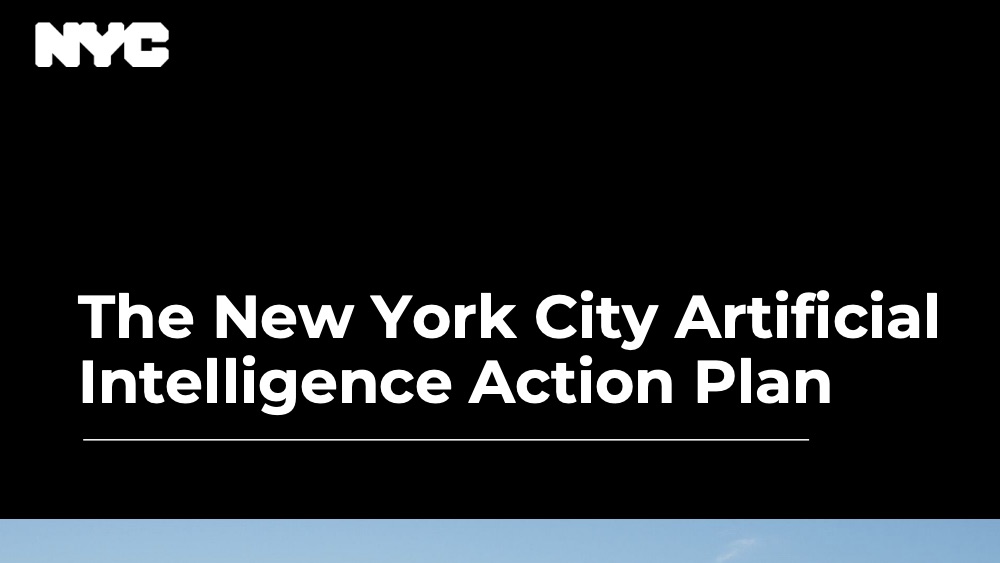
The New York City Artificial Intelligence Action Plan
Road map for the use of Artificial Intelligence (AI) for New York City
-
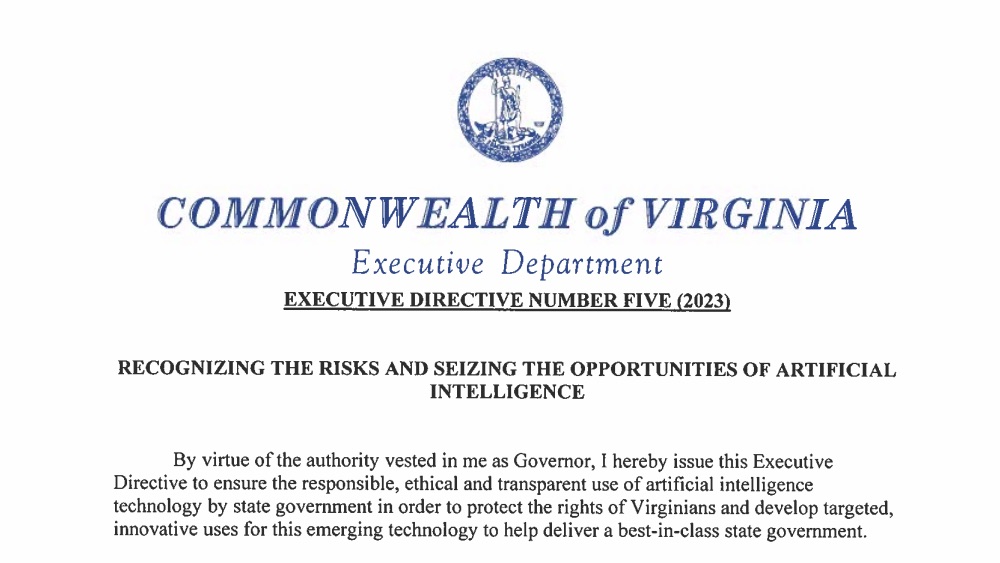
Commonwealth of Virginia Artificial Intelligence Executive Order
The Commonwealth of Virginia's Executive Order Number Five (2023): Recognizing The Risks And Seizing The Opportunities Of Artificial Intellignece to ensure responsible, ethical, and transparent use of artificial intelligence (AI) technology by state government.
-
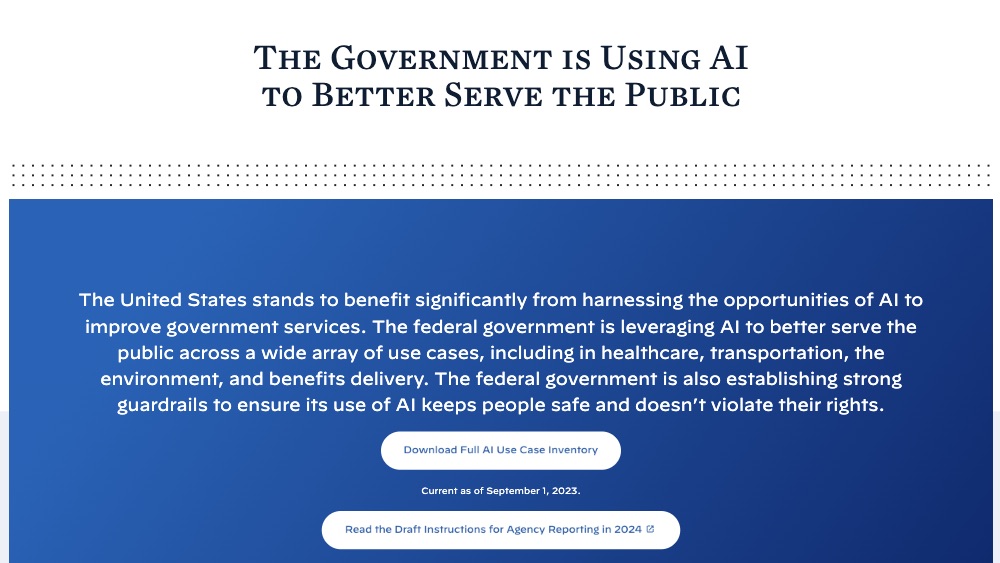
Government Uses of AI Repository
A repository of artificial intelligence (AI) use cases from U.S. federal government agencies
-
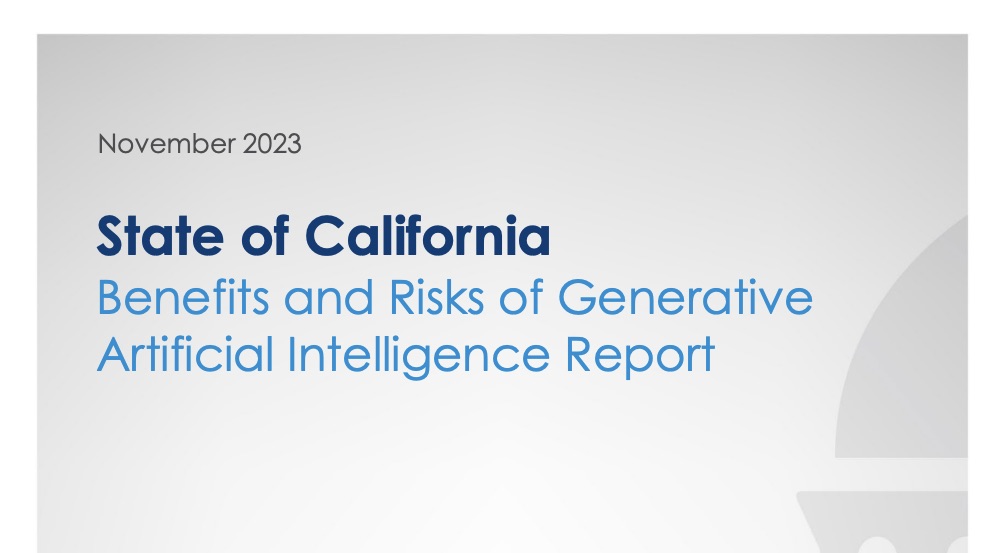
State of California Benefits and Risks of Generative Artificial Intelligence Report
A report from the State of California presenting an initial analysis of where generative AI (GenAI) may improve access of essential goods and services.
-
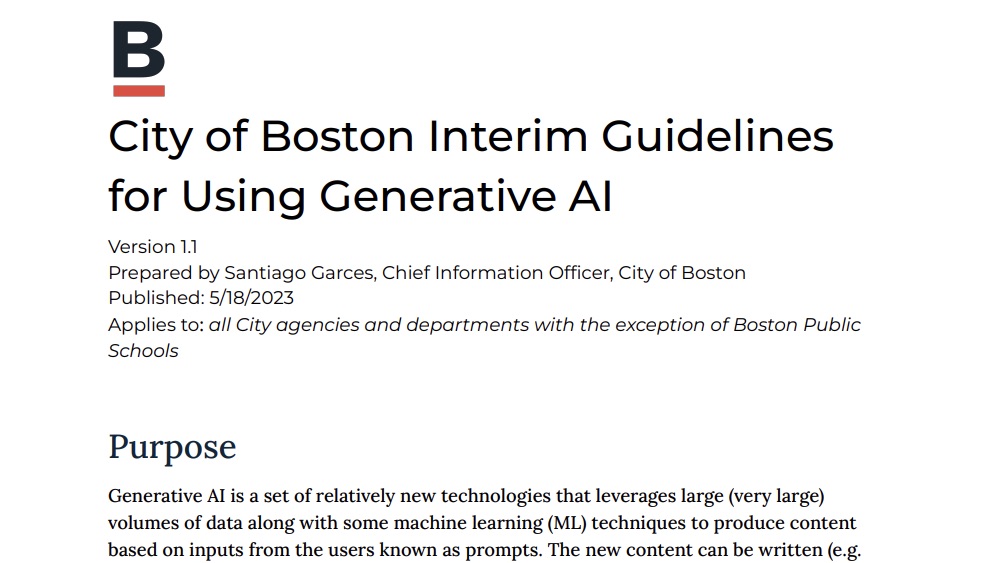
City of Boston Interim Guidelines for Using Generative AI
Interim guidelines for the use of generative AI in the City of Boston, MA.
-
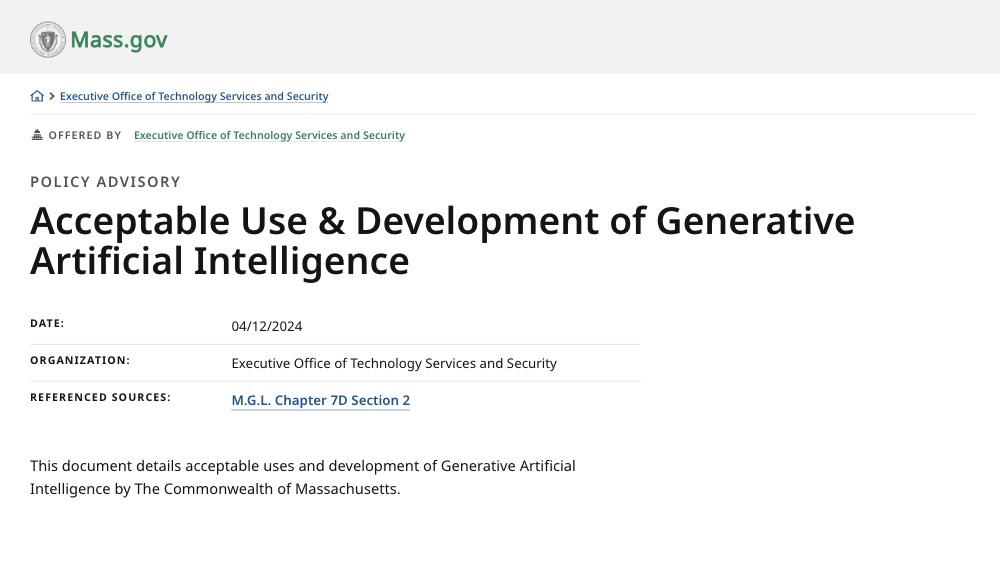
Commonwealth of Massachusetts Acceptable Use and Development of Generative Artificial Intelligence
This document details acceptable uses and development of Generative Artificial Intelligence by The Commonwealth of Massachusetts.
-
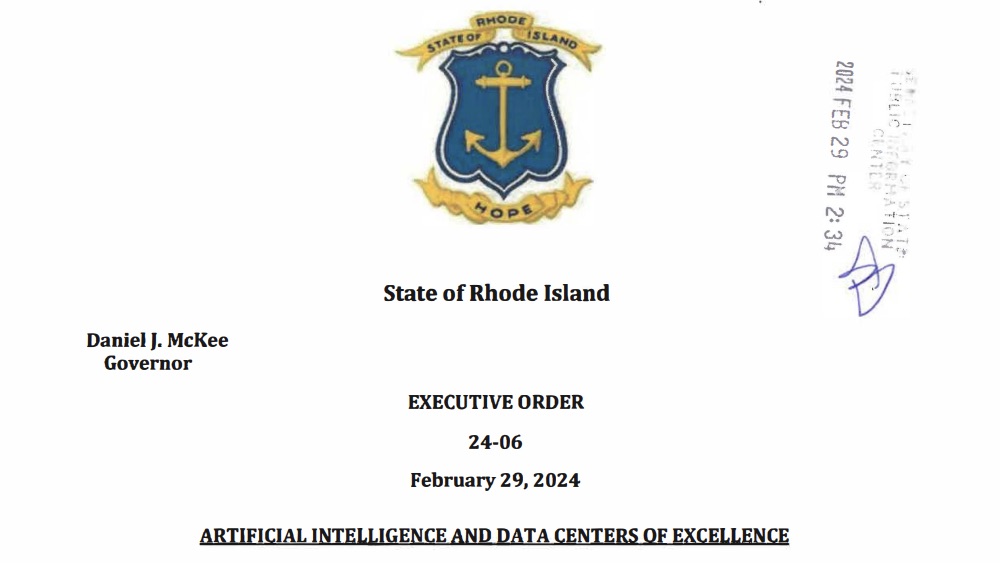
State of Rhode Island EO 24-06: Artificial Intelligence and Data Centers of Excellence
Executive Order from the State of Rhode Island establishing the Artificial Intelligence Task Force and a Center of Excellence for AI and Data.
-
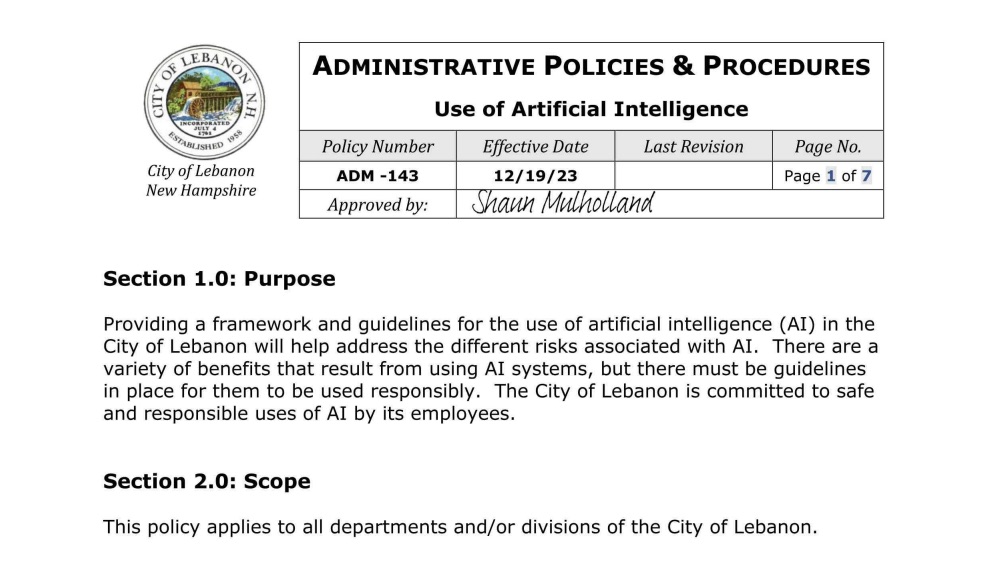
City of Lebanon Use of Artificial Intelligence Policy
First Artificial Intelligence (AI) Policy in the City of Lebanon, NH
-
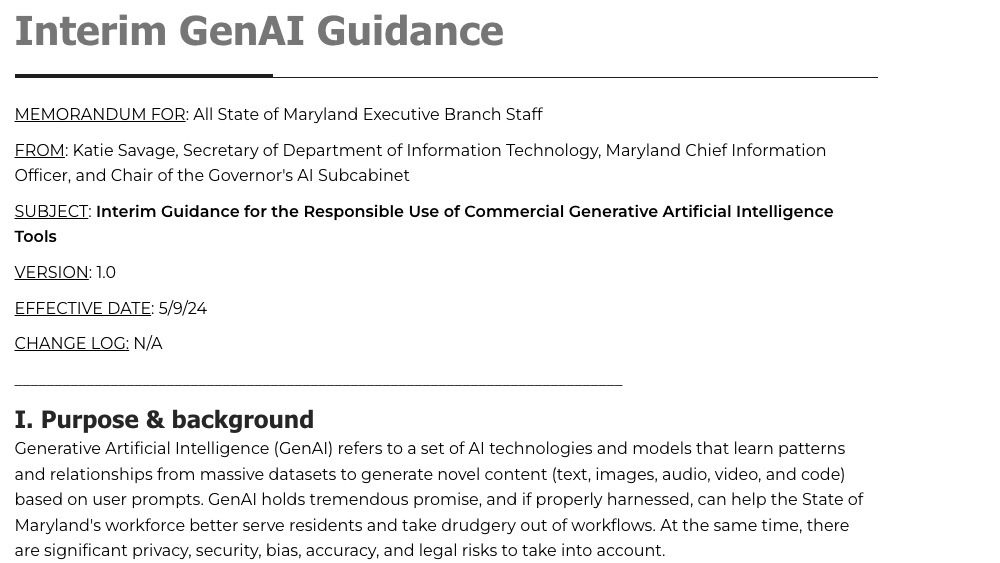
State of Maryland Interim GenAI Guidance
Interim guidance on the use of Generative Artificial Intelligence (GenAI) in the State of Maryland.
-
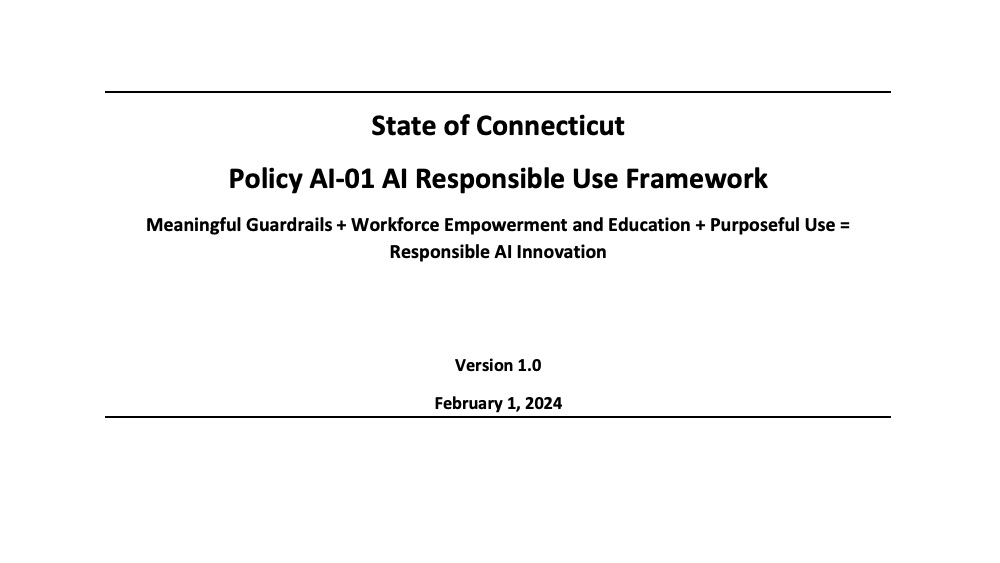
State of Connecticut Policy AI-01 AI Responsible Use Framework
The State of Connecticut's policy on Artificial Intelligence (AI) Responsible Use establishes a comprehensive framework for the ethical utilization of artificial intelligence in the Connecticut state government.
-
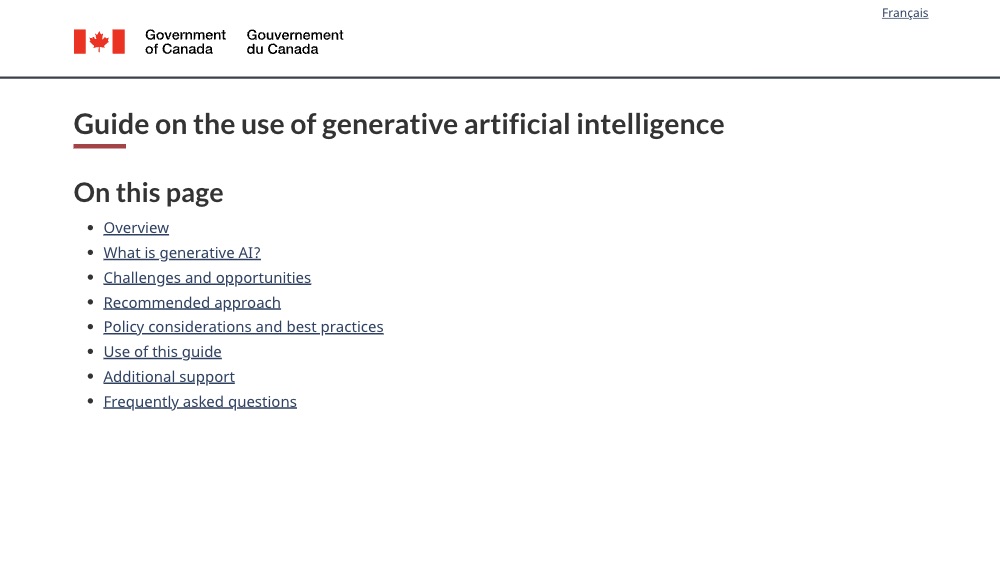
Government of Canada Guide on the use of Generative AI
Guide for the use of generative artificial intelligence (AI) from the Government of Canada.
-
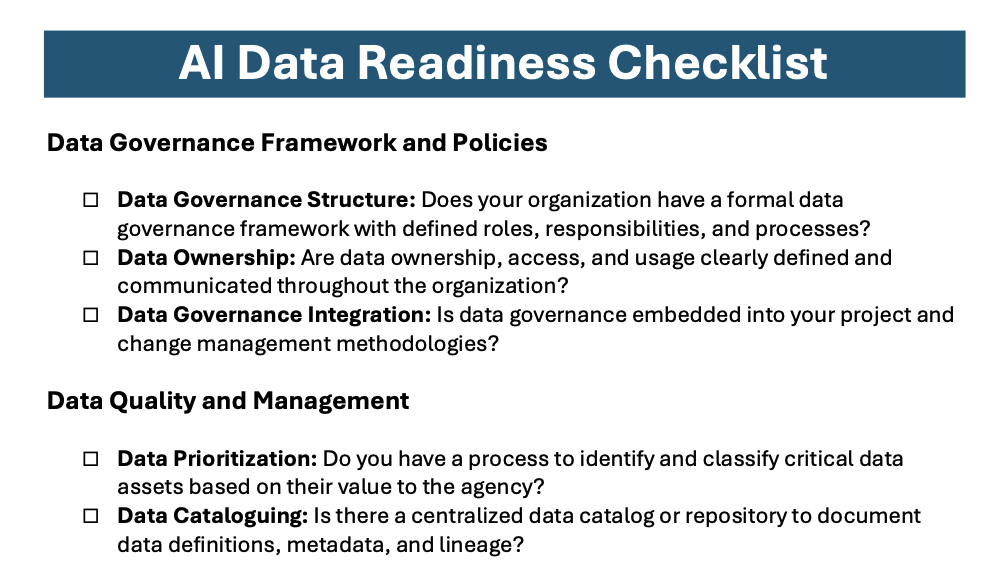
AI Data Readiness Checklist
A data artificial intelligence (AI) checklist from the Commonwealth of Virginia.